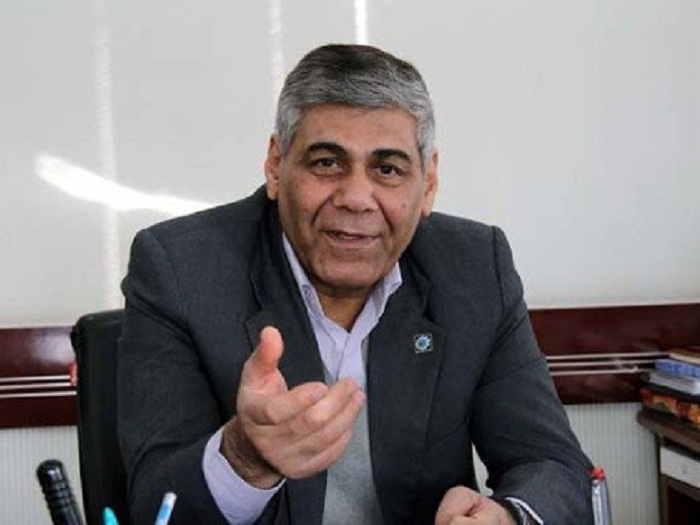Joining the FATF is a prerequisite for economic prosperity

The extension of the FATF bills in the Expediency Council, which was approved by the Supreme Leader of the Revolution in response to the President's request, redefined the benefits and harms of joining the WTO. According to experts, the FATF is a necessary condition for economic growth. In the country.
According to the International Iranian Stone Exhibition, Ahmad Mojtahed said that joining the FATF and approving the four related bills were a necessary condition for the Iranian economy, which alone would not be enough to create economic growth and prosperity.
The university professor further explained: "In order for Iran's economy to get out of the current situation and move towards prosperity, we must be able to be removed from the FATF black list and then enter into international exchanges." Of course, the fallacy of some opponents of Iran's accession to this international organization is that they expect that by joining this treaty, economic prosperity will be created, and since this does not happen, they describe joining it in vain.
The former head of the Monetary and Banking Research Institute added: "The FATF and other international treaties like it, including the WTO (World Trade Organization), are all platforms that enable international relations for the economies of countries." In other words, there are pools that give swimmers the opportunity to swim. Of course, having a pool does not mean swimming skills, and if we want to see economic prosperity and growth, in addition to maintaining the possibility of swimming in the pool, we must also increase our swimming skills.
Mujtahid continued: "Therefore, joining the FATF and approving the four bills that the government submitted to the parliament are necessary conditions for the country's economic prosperity." But the realization of this important requires other sufficient conditions.
Regarding the harms of being on the FATF blacklist, the economist said: "It is true that the biggest international problem of the Iranian economy today is the US government's unilateral and oppressive sanctions against Iran. It will not happen, but we must keep in mind that under these sanctions, Iranian economic actors could have had financial dealings with some Chinese, Russian and even Turkish banks, and by being blacklisted by the FATF, this was taken away from exporters and importers. This incident caused another serious disruption to Iran's trade process.
Explaining the reasons for the opposition to joining the FATF in Iran, he explained: "These people think of a kind of self-sufficient economy, which means that the domestic productive and economic environment of the country should be such that any fundamental connection and dependence outside the borders is lost." This belief is raised and pursued while the reality of the economies of different countries around the world shows that it is not possible and will not be possible to create such a closed economic space for any country. Even North Korea has economic ties with China and is particularly dependent on this large global economy, especially in minerals such as coal.
The university professor further pointed to the negative economic growth of the country during the past months and said: "This issue has various factors, including the negative rate of investment in the country, which is affected by sanctions against Iran and the impossibility of importing technology." New ones have been created.
"In this situation, some people think we can create technology ourselves," said the former director of the Monetary and Banking Research Institute. Of course, it is possible to build inside, but unfortunately these technologies are generally far behind the world and are much less productive. This is an issue that we are clearly witnessing in the petrochemical industry. Petrochemicals that are built entirely on the inside, due to the backwardness of modern technologies, in addition to imposing much higher costs on the country's economy than the global soft, can ultimately only produce petrochemical raw materials. Therefore, today our country is only an exporter of petrochemical raw materials, which has created little added value for the country's economy.
Mujtahid emphasized: I do not know the political reasons for the opposition, but from the economic point of view, I am very surprised to see such opposition. If we consider the national interests, we should not pave the way for the closure of the country's economic borders due to opposition to a particular individual, group or current. Economic prosperity occurs when we can have healthy international relations and be able to make good use of the technology and experience of the world.
The professor added: "Some say that under the same sanctions and being on the FATF blacklist, we have been able to have financial relations with other countries in the world." This is true, but they do not pay attention to the very important point that the cost and risk of these financial transactions have increased. Conducting financial transactions through informal channels such as exchange offices, in addition to increasing the cost of financial transactions by 5 to 8 percent, carries the risk of losing the original money in these informal channels. This situation has cost the country's economy up to $ 1 billion, which is in addition to the large number of investments, some of which have been lost through these informal channels, and it is not possible to pursue them.
He concluded: "Even if US sanctions against Iran remain in place, Iran's removal from the FATF blacklist will allow Iranian traders and traders to have more and less costly financial dealings with countries such as China and Russia." Even small global banks that have little to do with the United States tend to take risks with Iran, and being removed from the blacklist could increase the country's economy's ability to trade around the world.
* IRNA










